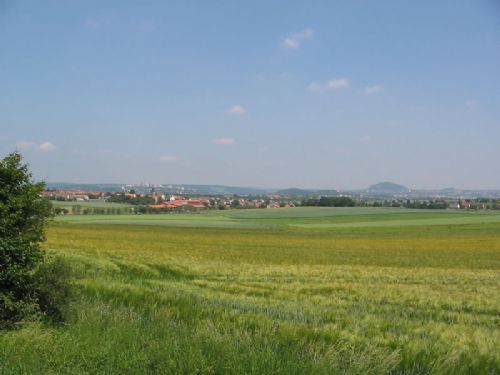UKRAINE - In 2012, Ukrainian agricultural export increased by nearly 40 per cent, reaching US$17 billion, according to the Ukrainian Minister of Agrarian Policy and Food, Mykola Prysyazhnyuk.
Additionally, he noted that Ukrainian agricultural industry produces twice as much as is consumed by the domestic market. Comparably, the UK produces only 60 per cent of the food consumed in the country.
Ukrainian agricultural export in January - October 2012 included meat, fish, dairy, poultry, vegetables, vegetable oils, sugar, wine, nuts, apples, as well as 6.7 million tons of wheat worth nearly USD 1.8 billion, according to ukrstat.gov.ua. Major buyers of Ukrainian agricultural products in 2012 were the EU and CIS countries.
In late December 2012, the Financial Times noted Ukraine's potential in wheat, barley, corn, and sunflower seeds export. Notably, in 2011, Ukraine joined the world's top three grain exporters. A year prior - in 2010 - it landed fourth on the list of the leading grain exporters, following the USA, the EU, and Canada. Moreover, Ukraine currently ranks number one in global barley exports.
Additionally, the Eastern European country became the third largest corn supplier in the world in 2011, surpassing Brazil and being the second runner-up to the USA and Argentina. In 2012, China - the world's largest corn consumer - imported Ukrainian corn for the first time.
Suffice it to say that in 2011, Ukraine became the world's largest sunflower exporter, according to Erste Bank. The top consumer of Ukrainian sunflower oil is India - the country acquires around one quarter of the annual Ukrainian sunflower oil export, according to Ukragroconsult.
Given Ukraine's rich grain production in 2011, the country initiated the creation of the world's grain reserve under the auspices of the United Nations to ensure more efficient price regulation on the world grain market. Ukraine aimed to form a grain reserve of 10 to 12 million tons and use it for grain interventions.
ThePigSite News Desk
Additionally, he noted that Ukrainian agricultural industry produces twice as much as is consumed by the domestic market. Comparably, the UK produces only 60 per cent of the food consumed in the country.
Ukrainian agricultural export in January - October 2012 included meat, fish, dairy, poultry, vegetables, vegetable oils, sugar, wine, nuts, apples, as well as 6.7 million tons of wheat worth nearly USD 1.8 billion, according to ukrstat.gov.ua. Major buyers of Ukrainian agricultural products in 2012 were the EU and CIS countries.
In late December 2012, the Financial Times noted Ukraine's potential in wheat, barley, corn, and sunflower seeds export. Notably, in 2011, Ukraine joined the world's top three grain exporters. A year prior - in 2010 - it landed fourth on the list of the leading grain exporters, following the USA, the EU, and Canada. Moreover, Ukraine currently ranks number one in global barley exports.
Additionally, the Eastern European country became the third largest corn supplier in the world in 2011, surpassing Brazil and being the second runner-up to the USA and Argentina. In 2012, China - the world's largest corn consumer - imported Ukrainian corn for the first time.
Suffice it to say that in 2011, Ukraine became the world's largest sunflower exporter, according to Erste Bank. The top consumer of Ukrainian sunflower oil is India - the country acquires around one quarter of the annual Ukrainian sunflower oil export, according to Ukragroconsult.
Given Ukraine's rich grain production in 2011, the country initiated the creation of the world's grain reserve under the auspices of the United Nations to ensure more efficient price regulation on the world grain market. Ukraine aimed to form a grain reserve of 10 to 12 million tons and use it for grain interventions.
ThePigSite News Desk











